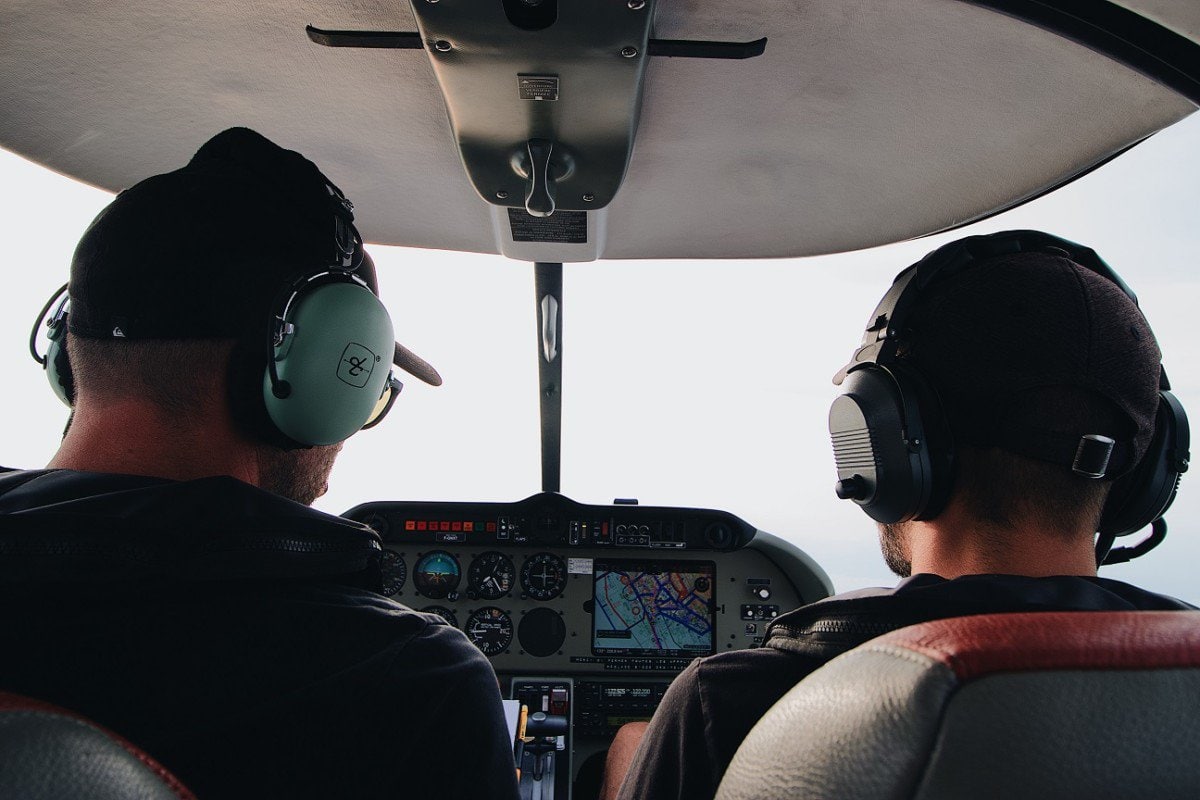Learning how to fly an airplane can be daunting, but it is also very rewarding. As a student pilot, you will come across many obstacles during flight instruction. While some of these obstacles may make it difficult for you to progress in your training, there are also ways to overcome them. Let’s take a look at some common obstacles and tips on how to overcome them.
Time Commitment
One of the biggest challenges facing student pilots is the time commitment required for flight instruction. It takes time and dedication to become proficient at flying an airplane. According to a report by the Aircraft Owners and Pilots Association (AOPA), the average student pilot requires 60-75 hours of flight instruction to obtain a private pilot’s license. This process can take anywhere from 3-12 months depending on the individual’s availability and commitment.
Planning out your schedule in advance is essential for ensuring you have enough time for flight instruction. Here are some tips for planning your time effectively:
- Set aside specific blocks of time each day or week for studying and practicing aviation-related topics. This will help you stay on track with your studies and make progress toward your aviation goals.
- Prioritize your aviation-related activities, and ensure you schedule them during times when you are most productive and focused.
- Consider the time of day and weather conditions when scheduling flight lessons. Flying early in the morning or late in the afternoon may be more comfortable due to milder temperatures and less turbulence.
- Communicate with your flight instructor about your availability and preferences. This can help ensure that your lessons are scheduled at a time that works best for you and your instructor.
- Use a planner or digital calendar to keep track of your aviation-related activities and ensure you are allocating enough time for studying, practice, and flight lessons.
Remember that planning your time effectively is key to making progress in your flight instruction journey. By setting specific goals and dedicating enough time to achieving them, you can overcome the time commitment obstacle and become a proficient pilot.
Financial Commitment
The financial commitment associated with flight instruction can also be a significant obstacle for many student pilots. Private flying lessons can get expensive very quickly if you don’t plan accordingly. However, there are several strategies you can use to minimize costs and overcome this challenge. Here are some tips for reducing the financial burden of flight instruction:
- Take advantage of discounts: Many pilot supply stores and local airports offer discounts on flight training and supplies. Check with your local aviation community to see if any such offers are available in your area.
- Join a flying club: Flying clubs are groups of aviation enthusiasts who pool resources to purchase and maintain aircraft. Joining a flying club can provide access to lower hourly rates for aircraft rentals, as well as discounted rates on fuel and other supplies.
- Consider online resources: Books, videos, and online courses can provide cost-effective alternatives for self-study. This can help you save money on in-person lessons while still gaining the knowledge you need to progress in your training.
- Plan ahead: Setting a budget and planning your training in advance can help you avoid overspending. Consider working with your flight instructor to set a timeline for achieving your aviation goals while staying within your budget.
- Look into financing options: Some flight schools and aviation organizations offer financing options to help cover the cost of flight instruction. Research these options and consider whether they could be a viable solution for you.
Read Also: 11 Tips For Learning To Fly When You’re Broke
Remember that the cost of flight instruction can vary widely depending on your location and individual progress. However, by planning effectively you can reduce the financial burden of flight instruction and make progress toward your aviation goals.
Lack of Confidence
Finally, lack of confidence is one of the most common challenges faced by student pilots when learning how to fly. Overcoming this can be challenging, but there are several strategies you can use to build your skills and boost your self-assurance.
- Practice with a simulator: Using a flight simulator can help you develop basic flying skills without the added pressure of being in the cockpit. This can help you gain confidence in your abilities and prepare you for actual flight lessons.
- Start with small goals: Setting small, achievable goals can help build your confidence over time. Start by mastering basic maneuvers and gradually work your way up to more complex tasks.
- Communicate with your flight instructor: Your flight instructor is there to help you succeed, and they can provide valuable guidance and feedback on your progress. Don’t be afraid to ask questions or seek additional support when needed.
- Observe other pilots: Watching experienced pilots in action can provide valuable insights and help build your confidence. Consider attending aviation events or observing other pilots at your local airport.
- Focus on the positive: Celebrate your successes, no matter how small they may seem. Focusing on your accomplishments can help build your confidence and motivate you to continue making progress.
In Conclusion…
Flying an airplane requires dedication, hard work, and of course, money – but it all pays off in the end! With proper planning and preparation, any student pilot can overcome obstacles like a lack of confidence or financial commitment during their flight instruction journey. By understanding what potential obstacles exist ahead of time and preparing accordingly, anyone can become a successful aviator!
Recent Posts
Learn what a SIGMET is in aviation, how it differs from AIRMETs, and why Significant Meteorological Information is critical for safe flight planning and operations.
Squawk 7700: What Aviation's Emergency Code Means for Pilots
Learn what Squawk 7700 means in aviation, how pilots use this emergency transponder code, and how air traffic control responds to aircraft emergencies worldwide.


